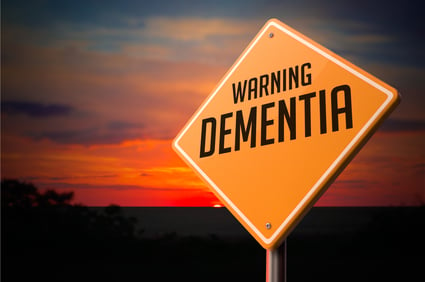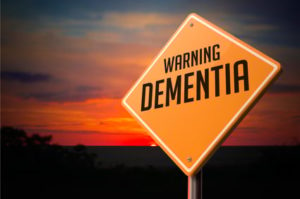Are you worried someone you know might have Alzheimers? Are you wondering what are possible dementia symptoms versus signs of normal aging?
Dementia Symptoms
- Consistent memory problems, particularly in short-term memory (things recently learned). Occasionally forgetting a name or missing an appointment can happen to all of us, but short-term memory problems in someone with dementia start to affect daily life and become obvious to others around them. Because of these short-term memory issues, a person suffering from Alzheimer’s will frequently misplace things.
- Difficulty managing tasks, which usually starts with more complex tasks such as managing finances or a schedule or handling a multi-step process. Eventually it may become noticeable when the person cannot manage day-to-day things like keeping up with household tasks, errands or personal care.
- Language difficulty and problems with complex thinking. This is why multi-step tasks and those that require higher level thinking first become problematic. One of the common dementia symptoms is forgetting (or mixing up) words.
- Changes in personality or mood. Depression and dementia can have similar symptoms in older adults, so it’s important to get a good diagnosis. Mood swings and big changes in personality can be signs of dementia. Someone with Alzheimer’s may seem to be showing a lack of initiative and withdraw from normal activities.
- Becoming easily disoriented. This often starts with disorientation regarding time, day/date. The person with dementia may be easily confused about the time of day and have trouble keeping track of tasks and even common things like meals. As time goes on, the person will often get lost or become confused about location.
For a free handout discussing dementia symptoms and Alzheimer’s/dementia terminology, check out the Aging Wisely Education Series. We’re offering a free Alzheimer’s class this week if you want to come learn more from an expert (we provide these on a regular basis, in case you can’t make this one).
What to Do When Someone’s Showing Dementia Symptoms
It is essential to get a good diagnostic work up when dementia symptoms are present. There are some reversible conditions and causes which can mimic Alzheimer’s disease. An older adult may experience memory issues when depressed, for example. Medication misuse or interactions may also affect cognition. An experienced professional can make a very accurate dementia diagnosis by doing testing, reviewing symptoms, getting a thorough history and running tests to rule out other health issues.
What to Do After Getting a Dementia Diagnosis
The first thing you should do is set up a family meeting (more likely, a series of meetings) to discuss important issues and make plans. It is also useful for the diagnosed individual and family members to be able to process their feelings and share concerns. You may want to contact a geriatric care manager to help facilitate the meeting, or to be called in afterwards to assist with some of the tasks and resources you’ll be needing. We will share our top five things to do after getting a dementia diagnosis in an upcoming post, so stay tuned (or sign up for our newsletter so you’re always up to date!).
In the meantime, contact us for resources and eldercare assistance at any time. Our team of experts is here to help you!








